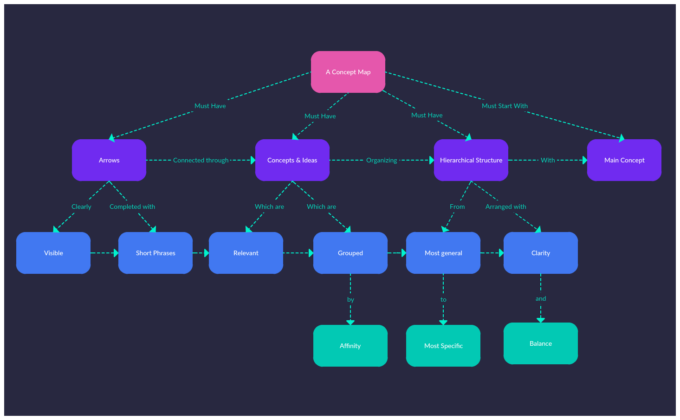Content marketing is one of the most important things to invest in for your business.
Content marketing is the process of populating your site with high-quality articles and pages. So what exactly does that entail? Why is content marketing so important for your site rankings, regardless of industry?
Below, we delve into six things every business needs to know about content marketing and its relevance.
1. The Basics of Content Marketing
Content marketing, in simplest terms, is a way to create valuable content that informs and educates your audience as part of a larger, strategic marketing approach.
Content marketing is different from concepts like branded content, product marketing, and native advertising because it’s informative and highly useful to the people reading it.
According to LawRank, a top digital marketing and SEO services provider for law firms, content marketing is more about telling a story than it is advertising.
Your strategy becomes long-term, with the ultimate goal of building a strong relationship with your target audience through the delivery of content that’s relevant and high-quality but also consistent.
You’re showing that you care about your customers and nurturing relationships with them, compared to one-off ads.
Content marketing is overall the process you use to plan, create, distribute, share and publish your content via multiple channels. These channels include everything from your website and blog to apps and podcasts.
2. The Importance of Content Marketing

When you do content marketing well, it’s highly valuable for you as a business.
You’re educating your prospects and leads about what services and products you offer, but you’re also building those relationships with your audience that lead to increased loyalty. You can boost conversions, show your audience how your services and products solve challenges they have, and you’re building a sense of community around your brand.
3. There Are a Lot of Types of Content Marketing
There is a range of types of content marketing that you can use in your larger strategy. These include:
- Social media: Social media content marketing means you’re creating everything from written posts to videos you post on the platforms where your audience spends the most time, like Instagram, Facebook, LinkedIn, or Pinterest.
- Infographics: An infographic is a great, digestible way to display content, data, and information in a visually appealing and easy-to-understand format. Infographics integrate short statements, simple words, and eye-catching images.
- Blogs: These are considered inbound content, and you can get creative with your blog posts. They’re also excellent for search engine optimization. Here you can learn how to write a blog post outline.
- Podcasts: A newer approach to content marketing, podcasts have exploded in popularity in recent years. A lot of businesses have started creating their own podcasts to capitalize on their popularity.
- Videos: Video content marketing is easy to convey your message to your audience, and you can post it in different places. You can boost conversions and share your videos on social media, landing pages, or co-marketing sites.
- Paid ads: There is a place to include paid ads within the larger content marketing category. Paid ads are something that works well when paired with inbound marketing. You can share paid ads on landing pages and as sponsored content, banners, and social media.
4. Content Mapping Helps

Content mapping is something that can be helpful in your content marketing strategy. Content mapping helps you understand your audience on a deep level so that you can create content for every stage of their journey as they move toward buying your product.
Content marketing is most often thought of as a top-of-funnel strategy. Since it’s top-of-funnel, content marketing builds engagement and brand awareness.
5. SEO and Content Marketing Work Together
Search engine optimization or SEO is the technique you use to ensure your content and web pages can be seen by a particular audience you hope to target. The overarching objective of SEO is to help match your content with your targeted audience as they’re searching for something related.
You want to make sure the right set of eyes is landing on the right piece of content every time, which is SEO.
SEO can’t work independently, so it needs to work alongside content marketing. In many ways, content marketing is what does the heavy lifting for SEO.
You’re never going to approach things looking at SEO versus content marketing. Instead, you’re going to create amazing content that has strong SEO at the same time.
This means designing your content with your audience and search engines in mind.
That doesn’t mean keyword stuffing. Instead, you’re creating content while mindful of how search engines work. Search engines use algorithms to try and determine what your blog or page is about, so they can deliver it to an audience that will find it relevant.
You really can’t have one without the other when it comes to content and SEO. There’s synergy between the two.
6. Be Consistent

Finally, with content marketing, you have to be consistent. Consistency is important to your audience because they will expect to see a recurring stream of great content that you’re producing. That’s going to help deepen the relationship they have with you when they know what to expect, and you follow through on those expectations.
Consistency is also important for SEO, and content automation plays a significant role in achieving it. Search engines take into consideration how often you publish new content. If you’re regularly updating your site or blog and creating a steady stream of content, you will rank higher in most cases.
Every new piece of content you’re publishing shows relevance to search engines and adds more keywords that can bring traffic. When you produce content consistently, you are also increasing your authority.
Content marketing can be a way to add rich value to the lives of your audience. It’s an integral part of a larger digital marketing strategy, and it’s also one of the best ways to boost your SEO efforts. It’s an essential part of the puzzle for any modern business.









